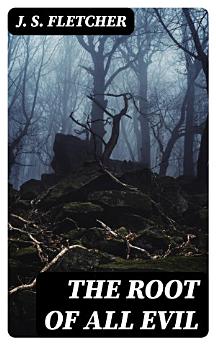The Root of All Evil
J. S. Fletcher
វិច្ឆិកា 2022 · DigiCat
សៀវភៅអេឡិចត្រូនិច
176
ទំព័រ
family_home
មានសិទ្ធិ
info
reportការវាយតម្លៃ និងមតិវាយតម្លៃមិនត្រូវបានផ្ទៀងផ្ទាត់ទេ ស្វែងយល់បន្ថែម
អំពីសៀវភៅអេឡិចត្រូនិកនេះ
J. S. Fletcher's "The Root of All Evil" is a masterful exploration of moral ambiguity set against a backdrop of early 20th-century England. The novel weaves a gripping narrative that delves into themes of greed, betrayal, and the darker shades of human nature. Fletcher employs a rich, intricate prose style, effectively utilizing dialogue and vivid descriptions that invite readers into the psychological depths of his characters. Through a plot steeped in suspense, the book challenges conventional notions of good and evil, compelling readers to question the true nature of morality within the societal constraints of the time. J. S. Fletcher, an English author known for his crime and detective fiction, drew inspiration from his journalistic background and keen observations of societal dynamics. The interplay of personal ambition and ethical dilemmas in "The Root of All Evil" reflects Fletcher's own experiences, as he often scrutinized the motivations behind human behavior in his reporting. His deep-seated fascination with the complexities of crime and justice is evident throughout the work, enriching the narrative's authenticity. This book is a must-read for anyone interested in literature that transcends simple genre boundaries, presenting a thought-provoking commentary on human nature. Readers will find themselves captivated by Fletcher's ability to create tension while delivering profound insights into the moral fabric of society. "The Root of All Evil" not only entertains but also invites critical reflection, making it an enduring classic in the realm of psychological thrillers.
អំពីអ្នកនិពន្ធ
Joseph Smith Fletcher, an accomplished and prolific English journalist and author, was born on February 7, 1863, in Halifax, West Yorkshire, and passed away on January 30, 1935. Renowned primarily for his detective fiction, Fletcher penned over 230 books across various genres, but he carved his niche within the world of mystery and crime literature. In his book 'The Root of All Evil,' Fletcher demonstrates his masterful storytelling and intricate plotting, qualities that have earned him recognition in the canon of classic crime novelists. Fletcher's literary style can be described as engaging and accessible, characterized by well-defined characters, vivid settings, and a penchant for intricate, puzzle-like plots that intrigued and entertained his audience. His work is often set in his native Yorkshire, providing a rich and authentic backdrop that contributes to the atmosphere of his narratives. Spanning an extensive career, Fletcher's contribution to literature has not been forgotten, and he continues to be celebrated for his unique ability to weave suspense with a keen observation of the human condition. Although his name might not be the foremost mentioned among mystery writers, his body of work remains emblematic of the genre's early development and enduring appeal.
វាយតម្លៃសៀវភៅអេឡិចត្រូនិកនេះ
ប្រាប់យើងអំពីការយល់ឃើញរបស់អ្នក។
អានព័ត៌មាន
ទូរសព្ទឆ្លាតវៃ និងថេប្លេត
ដំឡើងកម្មវិធី Google Play Books សម្រាប់ Android និង iPad/iPhone ។ វាធ្វើសមកាលកម្មដោយស្វ័យប្រវត្តិជាមួយគណនីរបស់អ្នក និងអនុញ្ញាតឱ្យអ្នកអានពេលមានអ៊ីនធឺណិត ឬគ្មានអ៊ីនធឺណិតនៅគ្រប់ទីកន្លែង។
កុំព្យូទ័រយួរដៃ និងកុំព្យូទ័រ
អ្នកអាចស្ដាប់សៀវភៅជាសំឡេងដែលបានទិញនៅក្នុង Google Play ដោយប្រើកម្មវិធីរុករកតាមអ៊ីនធឺណិតក្នុងកុំព្យូទ័ររបស់អ្នក។
eReaders និងឧបករណ៍ផ្សេងទៀត
ដើម្បីអាននៅលើឧបករណ៍ e-ink ដូចជាឧបករណ៍អានសៀវភៅអេឡិចត្រូនិក Kobo អ្នកនឹងត្រូវទាញយកឯកសារ ហើយផ្ទេរវាទៅឧបករណ៍របស់អ្នក។ សូមអនុវត្តតាមការណែនាំលម្អិតរបស់មជ្ឈមណ្ឌលជំនួយ ដើម្បីផ្ទេរឯកសារទៅឧបករណ៍អានសៀវភៅអេឡិចត្រូនិកដែលស្គាល់។








